By
Cynthia M. Lardner
Prologue
Having been an American expat living in the Netherlands for a year now, I have listened to vociferous criticism of the United States. There seems to exist an international sentiment that the U.S. is singularly responsible for resolving every conflict and handling every crisis. One recent article went so far as to state that the U.S. was pursuing a policy of isolationism. This couldn’t be further from the truth. This article generally examines the U.S.’s global leadership.
Introduction
The United States (U.S.) is globally engaged in pursuing justice, heightened security and adherence to Rule of Law not only for Americans but for all people. In the 2015 State of the Union Address, President Barack Obama described the U.S.’s current strategy as a “…“smarter approach” to sustaining and strengthening America’s place as the pre-eminent force for peace, prosperity, and progress across the globe.”
American Led Coalition Forces in Syria and Iraq
Following a September 5, 2014 NATO summit meeting, U.S. Secretary of State John Kerry, and his counterparts from the United Kingdom, France, Germany, Canada, Australia, Turkey, Denmark and Italy, negotiated an agreement whereby these nine countries joined the U.S.’s Operation Inherent Resolve. Led by the U.S. Central Command, together they have supported anti-ISIL forces in Iraq, provided humanitarian and military aid to Iraqi and Kurdish ground forces, and executed air strikes on ISIL targets in Iraq, Syria and other countries.
According to the U.S. Department of Defense, as of September 20th, the U.S. led coalition had conducted 15,134 air strikes; 9,883 in Iraq and 5,251 in Syria. The U.S. was responsible for 6,704 Iraqi strikes and 4,983 Syrian airstrikes. Australia, Belgium, Canada, Denmark, France, Jordan, The Netherlands, and the UK have conducted 3,447 strikes in Iraq. Australia, Bahrain, Canada, Denmark, France, Jordan, The Netherlands, Saudi Arabia, Turkey UAE and the UK have conducted 268 Syrian airstrikes. As of August 2016, U.S. and partner nation aircraft have flown an estimated 111,410 sorties supporting Iraqi and Syrian operations.
Since operations started on August 8, 2014, the total cost of operations related to ISIL is $9 billion. For 739 days of operations, the average daily cost has been $12.3 million.
Russia’s Foreign Minister Sergei Lavrov (center R), U.S. Secretary of State John Kerry (C) and foreign ministers from Iran, Russia, Saudi Arabia, Turkey and Europe attending a November 14, 2015 meeting in Vienna, to step up diplomatic efforts to end Syrian conflict. Photo – Leonhard Foeger/Reuters.
Recognizing the counter-productive, costly and highly tragic nature of the Syrian War, over the past several years, Mr. Obama, Mr. Kerry and Vice President Joe Biden have initiated many peace talks, predominantly with Turkey, and with Russia acting as Syria’s intermediary. Resolution of the Syrian War will not occur through military intervention but through negotiation. The negotiations are complex, as unlike the Vietnam War, which was fought on the basis of one ideological difference – democracy vs communism – the Syrian War is based on the foreign policy and interests of seemingly innumerable nations and factions, as well as diverse ethnic, religious and political ideologies.
NATO
American leadership includes a strong commitment to NATO. NATO’s guidelines mandate that member states allocate at least 2% of their GDP on defense. Of the 28 member nations only five – the U.S., Greece, Poland, Estonia and the U.K. – meet the target.
NATO’s Allied Command Operations (ACO) in Mons, Belgium is headed by the Supreme Allied Commander, Europe (SACEUR), a U.S. four-star general or admiral, holding the the dual role of heading the U.S. European Command. In 2016 U.S. Army General Curtis Scaparrotti succeeded U.S. Air Force General Philip M. Breedlove as Supreme Allied Commander.
NATO’s second base of operation, the Allied Command Transformation, is hosted by the U.S. in Norfolk, Virginia. Until 2009, its Supreme Allied Commander has been an American General or Admiral.
U.S. Global Military Leadership
As of 2013, the total global military expenditures was $2,201,563 million. Compare the U.S. 2014 military budget of $640,221 million with France’s $62,500 million budget, the United Kingdom’s $61,800 budget or Germany’s $46,600 million budget.
In addition, as of 2016, U.S. expenditure for counter-terrorism efforts approximated $16 billion; double the amount spent in 2001. A portion of the 2017 U.S. State Department and USAID budget request of $50.1 billion includes targeted investments in international programs that will defeat terrorist organizations such as ISIL and al-Qaeda.
Sharing of Intelligence
The conglomerate of U.S. intelligence agencies are the most elite law enforcement organizations in the world. There are over 16 branches of U.S. intelligence falling under the purview of the National Director of Intelligence Lieutenant General James Clapper. These agencies cross-pollinate the sharing of information with one another enhancing effectiveness and, when justified or by agreement, with other countries.
For instance, according to a 2015 report issued the Homeland Security Committee, after the November 2015 Paris terrorist attacks, the first positive leads came from U.S. intelligence. The report stated that at least one terrorist involved in the Paris attacks entered Europe as a refugee, and there were multiple warnings from international research organizations and governments.
This intelligence was obtained via the Department of Defense’s (DoD) Defense Advanced Research Projects Agency (DARPA) project involving the coordinated use of CCTV traffic cameras for surveillance purposes. The number of CCTVs internationally numbers in the millions. Using artificial intelligence, this program automatically, if not instantaneously, processes the video feed, extrapolating not only license plate identification but, the identity of the driver vis-à-vis facial recognition software. DARPA’s algorithm further distinguishes between ‘normal’ and ‘abnormal’ behavior.
This DARPA program is supported by the DoD’s Global Positioning System (GPS), a space-based satellite navigation system built and maintained by DoD which, “Applies GPS technology to a broad variety of military operations, including precision guided munition strike, force tracking, search and rescue, and remote piloting of unmanned aerial vehicles.”
Civilian uses of GPS include navigation, precise timing for financial transactions, search and rescue, communications, farming, recreation and both military and commercial aviation. The GPS’ civilian applications are freely available to anyone in the world with a GPS receiver. When justified to protect national or international security, the GPS can block the “civilian” signals while still accessing the “military” signal or M-band.
The EU’s Galileo GPS Program
In its infancy is the European Union’s (EU) Galileo Global Navigation Positioning System which, once fully operational in 2020, will have both civilian and a secure Public Regulated Service (PRS). The PRS will be reserved for security-related use for the EU Member States, the European Council, the European Commission, and the European External Action Service. Subject to bilateral agreements, PRS may be accessed by non-EU states and international organizations.
The EU conceptualized Galileo in response to an empty threat that the U.S. would deny it access to its GPS during times of political disagreements. In June 2004 the EU and U.S. signed an agreement whereby the EU switched to a modulation known as the Binary Offset Carrier, resulting in a common modulation for both systems’ state-of-the-art open signals thus allowing for the coexistence of both GPS and Galileo, and the future combined use of both systems. The EU also agreed to address the “mutual concerns related to the protection of allied and US national security capabilities.” Now, according to Philippe Jean, head of the Galileo unit at the European Commission, there are ongoing negotiations to allow the U.S. and Norway access to the PRS.
The European Space Agency and the European GNSS Agency share responsibility for bringing Galileo on-line. As of May 2016 the system had 14 of 30 satellites in orbit. Galileo will reach Early Operational Capability in 2016. In 2020, when all 30-satellite are on-line in 2020, Galileo will share some of DARPA’s characteristics. Despite the lofty intentions, there have been many funding delays, including a 2016 funding reduction brought about by the ongoing refugee crisis.
Homeland Security
As there is no central basis for intelligence gathering and sharing within the EU, it is impossible to state with precision how much the EU and its member states are spending on homeland security, including counter-terrorism. It has been estimated that EU spending increased from €5.7 million in 2002 to €93.5 million in 2009.
The European Parliamentary Research Service released a report that U.S.’s homeland security spending increased on the average of $360 billion annually. The U.S. Department Homeland Security mission of preventing and responding to terrorism; enhancing security; managing borders; administering immigration laws; securing cyberspace; and ensuring disaster resilience, falls within the purview of its 240,000 employees.
Mimicking the U.S. Department of Homeland Security, also in its infancy, is the European Commission’s The Prevention, Preparedness and Consequence Management of Terrorism and other Security-related Risks (CIPS) programme. Designed to protect citizens and critical infrastructures from terrorist attacks and other security incidents, CIPS fosters the “…prevention and preparedness, particularly by improving the protection of critical infrastructures. At the same time, projects address consequence management – a key component for the smooth coordination of crisis management and security actions, in particular following terrorist attacks.”
Reflecting its developmental stage is the statement by the European Commission that its initial operating budget through 2013 was for “…operational cooperation and coordination actions (strengthening networking, mutual confidence and understanding, developing contingency plans, exchanging and disseminating information, experiences and best practices).”
According to Juan Zarate, senior adviser at the Center for Strategic and International Studies, this has resulted in terrorist groups taking advantage of weaknesses in communication and coordination amongst EU nations, including poor monitoring of the influx of refugees.
Clinton Watts, a fellow at the Foreign Policy Research Institute, referencing statistically correlated copycat attacks in the U.S. following media coverage of an EU incident, proposed that the U.S. assist the EU in establishing a cohesive counterterrorism task force.
“We have to go on the offense in Europe… an aggressive approach now,” stated Watts.
Sen. Kelly Ayotte, R-N.H, agreed, stating, “I think that we have to take a leadership role here. I don’t see another country that will be able to bring everyone together and get them to act.”
This reflects the Obama Administration’s foreign policy. As President Obama stated, “American leadership in the 21st century is not a choice between ignoring the rest of the world … or occupying and rebuilding whatever society is unraveling. Leadership means a wise application of military power, and rallying the world behind causes that are right. It means seeing our foreign assistance as a part of our national security …”
The Five Eyes Program
There already exists a multilateral agreement for cooperation in sharing highly classified intelligence, including the latest technology in signals intelligence, between Australia, Canada, New Zealand, the United Kingdom and the U.S. known as Stone Ghost or Five Eyes. The Five-Eyes program has expanded to include other countries on a case-by-case basis.
Five-Eyes gathers intelligence via intercepting signals, including communications originating between individuals and purely electronic signals. A subset of intelligence collection management, signals intelligence relies on cryptanalysis to decipher encrypted and sensitive messages. Cryptanalysis is augmented by artificial intelligence which scores or weighs the value of information thus speeding up the function. For security purposes, there is a reversible encryption rule or algorithm to transform plaintext to the cipher text.
In the United States, the National Security Administration, which is partially responsible for the Five Eyes program, is constitutionally limited as to what information may be collected. Those rules do not apply to U.S. abroad making U.S. intelligence of great value to partner nations.
The Refugee Crisis
One of the primary problems plaguing the EU is the refugee crisis; the largest humanitarian crisis since World War II. The U.S.is often criticized for not taking in refugees. In September, Mr. Obama announced that the U.S. has increased the number of refugees resettling in the U.S. during 2016 to 85,000, including 10,000 Syrian refugees. Over the coming year, the U.S. further committed to resettling an additional 110,000 refugees from around the world.
The South China Sea
On July 12, 2016 the Permanent Court of Arbitration (PCA) in The Hague issued an opinion in a territorial dispute between People’s Republic of China and the Philippines, commonly referred to as the South China Sea (SCS) Dispute. The sweeping opinion found in favor of the Philippines ruling that China, which had boycotted the proceedings calling them illegal, violated the United Nations Convention on the Law of the Sea (UNCLOS), an agreement about territorial seas and exclusive economic zones (EEZ), and in claiming sovereignty over the 80% of the SCS, known as the “nine-dash line”, encompassing almost 80% of the SCS. China has militarized the region rich in natural gas deposits.
In advance of the decision, China stated that it would not honor the PCA decision; a tribunal to which it is a member nation. As the PCA has no enforcement authority, enforcement falls on the United Nations Security Council (UNSC). As China can use its veto as one of five permanent members of the UNSC enforcement via the UNSC will never happen.
This places the burden of preserving security for the small nations bordering the South China Sea and for the freedom of navigation by other countries on the international community. Complicating regional security is the ever-increasing joint naval operations, ostensibly a show of force, by China and Russia.
At a September meeting with the Association of Southeast Asian Nations in Laos, Mr. Obama was unequivocal, “…that the United States will stand with allies and partners in upholding fundamental interests, among them the freedom of navigation and overflight, lawful commerce that is not impeded and peaceful resolution of disputes.” This sentiment was reiterated by Mr. Obama during his eighth and final address, delivered on September 20th, to the United Nations General Assembly (UNGA), that, “the South China Sea is where “a peaceful resolution of disputes offered by law will mean far greater stability than the militarization of a few rocks and reefs.””
In the Words of President Barack Obama
During his eight years in office, Mr. Obama has earned international respect. A recent Pew Research Center survey conducted in 10 European nations, four major Asia-Pacific countries, Canada and the U.S. found that half or more of those polled in 15 of 16 countries had confidence in his leadership.
Photo – Richard Drew/AP
This makes Mr. Obama’s eighth and final address to the UNGA of special significance:
…I believe America has been a rare superpower in human history insofar as it has been willing to think beyond narrow self-interest; that while we’ve made our share of mistakes over these last 25 years… we have strived, sometimes at great sacrifice, to align better our actions with our ideals. And as a consequence, I believe we have been a force for good.
We have secured allies. We’ve acted to protect the vulnerable. We supported human rights and welcomed scrutiny of our own actions. We’ve bound our power to international laws and institutions. When we’ve made mistakes, we’ve tried to acknowledge them. We have worked to roll back poverty and hunger and disease beyond our borders, not just within our borders.
Mr. Obama had previously addressed the widespread and ever-growing global tensions by stating, “And so I believe that at this moment we all face a choice. We can choose to press forward with a better model of cooperation and integration. Or we can retreat into a world sharply divided, and ultimately in conflict, along age-old lines of nation and tribe and race and religion.”
The author with United Nation Secretary-General Ban Ki-moon at the inauguration of the new ICC complex on April 19, 2016
Cynthia M. Lardner
Cynthia M. Lardner is an American journalist living in The Hague writing about geopolitics for Tuck Magazine and E – The Magazine for Today’s Executive Female Executive. Her blogs are read in over 37 countries. A thought leader in the area of foreign policy, her philosophy is to collectively influence conscious global thinking. Ms. Lardner holds degrees in journalism, law, and counseling psychology.


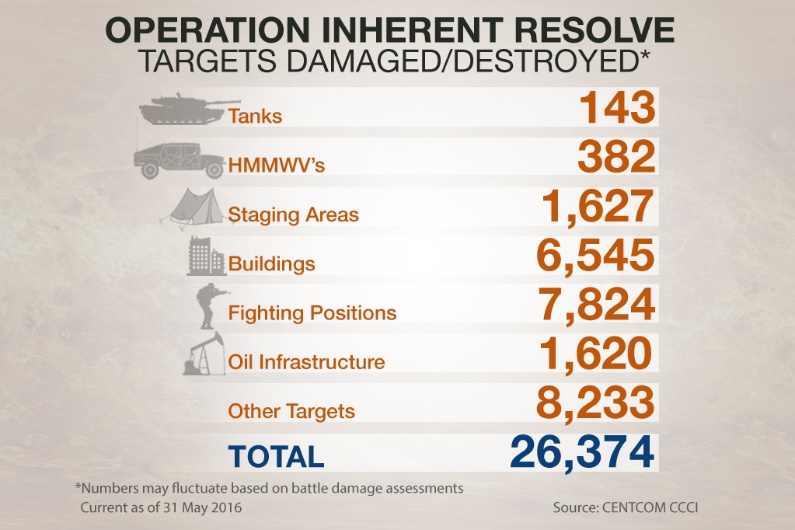
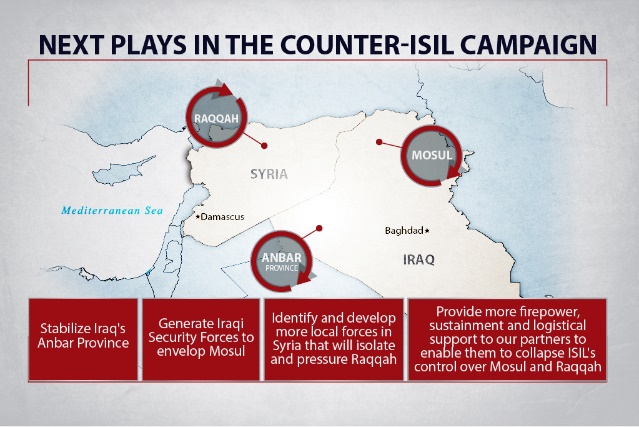
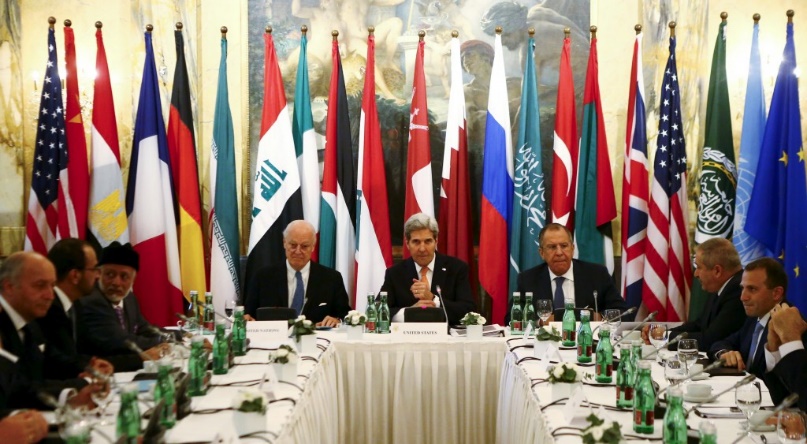
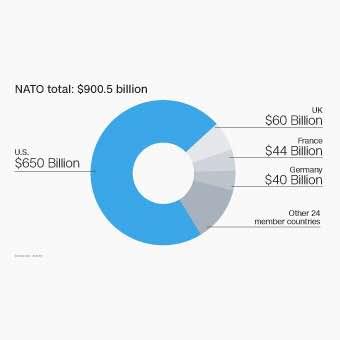
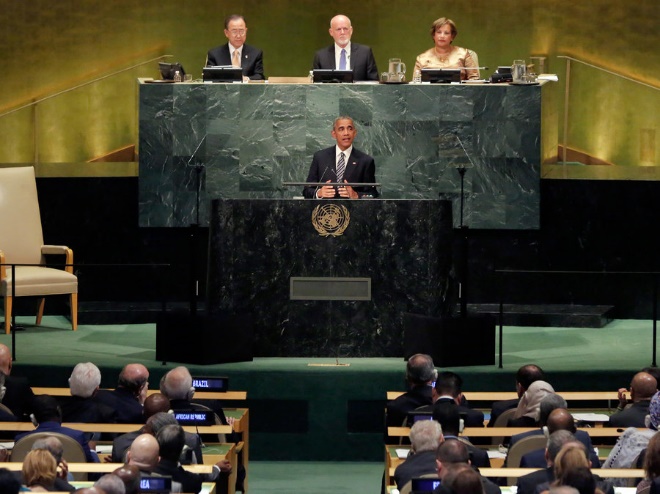
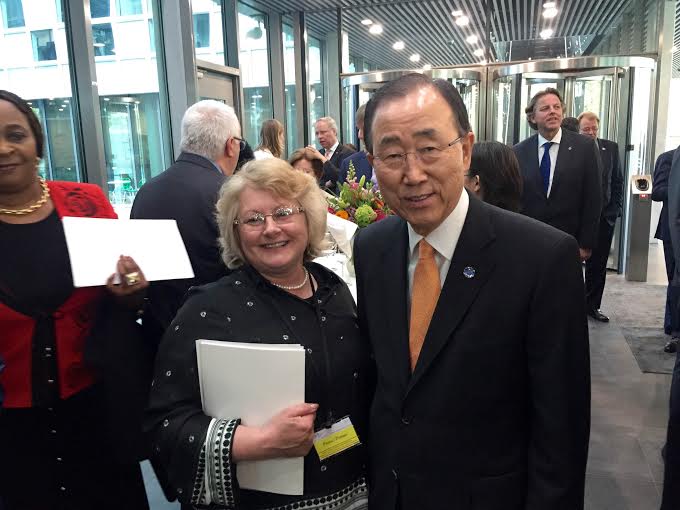
No Comments Yet!
You can be first to comment this post!